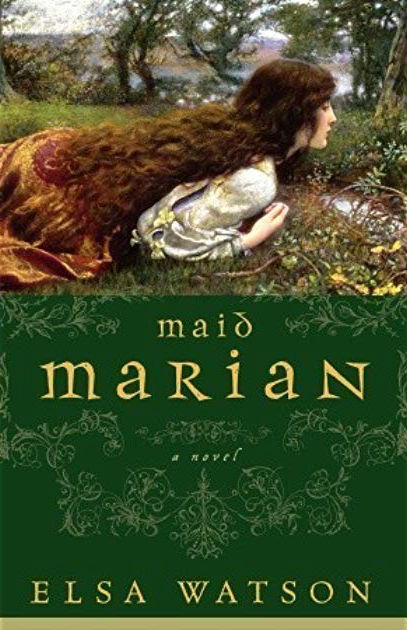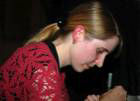AWW: What response have you had to the novel so far?
For the most part, it's been both good and surprising. I've been struck by the number of young women who have been interested. And by the number of people who say they got the book for their daughters. And I find that encouraging and surprising. I didn't expect that to happen. The criticism ha been levelled at what I call the fairy tale side of the story. Parts of the plot may not be completely realistic, and some readers take issue with that. Understandably, because that's what they were looking for. It's not what I was looking for. And I've also been surprised by the number of men who have read it. I expected it to be more of a women's book and for the most part, it is. The artwork on the cover draws more women than men. But a number of men have read it and enjoyed it, and that's a surprise for me.
AWW: Is there any chance of a follow-up to this story?
EW: To this one, I don't think so. I considered for a while taking the story further and maybe adding in a child. But I don't know, I have mixed feeling about doing that. Also, part of what I love about writing is the opportunity to research time periods that I don't know very much about. So now that I've already done that time period, it's hard not to go on to something completely different. Face a new mountain of research, wander into a whole new land. The book I wrote right after Maid Marian was actually set in the Dark Ages. It was very exciting researching. I had a great time learning about that.
AWW: What's that book called?
EW: Now it's called Rhigan's Maid, and it's about Igraine, King Arthur's mother, and Uther Pendragon and ... you know the story.
AWW: Has that got a publisher?
EW: It hasn't found its place yet. But they've just started shopping it around. So we'll see. I've got my fingers crossed. Now I'm working on a book about pirates in the 1700s in the Caribbean.
AWW: Both are still on historical and adventure themes.
EW: You're right about that. And still women as the main part of the story. These are female pirates. Well, a few of them are.
AWW: Well, that was basically all my questions. Is there anything that you would like people to know, anything you'd like to add?
EW: I think we've covered most everything. My only last thought is I've noticed a few readers responded to say that they were upset because the book didn't meet their specific expectations. That's something I absolutely understand, because as a reader you want a lot of things out of the book you sit down to read. And it's very rare for a book live up all of one's expectations. But a couple of people were surprised that the book wasn't purely about Maid Marian's life before she met Robin Hood. A few others have been surprised that it didn't all take place in Sherwood Forest. I just want to make sure that readers know that this is not supposed to be any official version of Maid Marian's story. This is my version. It's my addition to the whole Robin Hood legend. And you'll see all of those things. Both Maid Marian alone and with Robin Hood. Inside and outside of Sherwood.
AWW: It seems to me that you tried to meet both wildly divergent expectations.
EW: Interesting. Well, I knew what I wanted to read when I was writing the book. I definitely wanted to have both. There was no way I wanted to read the story if Robin Hood wasn't going to be in it. So, that was a given.
AWW: Thank you very much.
EW: Thank you for calling. I've been reading the stuff on your website for a long time. And it's exciting to think that I'm going to be a part of it.



Contact Us